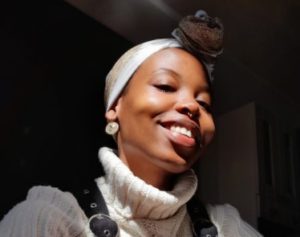
Favorite quote: “What Does Education Look Like To You?”
What is your story (tell us about yourself)?
After 15 years inside the studio training as a ballet and contemporary dancer subsequently followed by 7 years (to date) where I have been building my facilitation skills through teaching workshops and designing social justice education curricula, I have garnered a deep respect for art and education as vehicles through which to achieve the kind of pluralistic space that museum spaces ought to be. With Empowering the Art, the mission is to expand educational toolkits that take place in classrooms, museums and online.
When did you start your first business and what inspired you to start?
I started Empowering the Art in 2018 out of a frustration of not seeing enough cultural organizations work within their communities to provide sustainable arts and cultural activities for their youth. I needed a space that would encourage artistic intervention as a way to problem solving issues relevant to their communities and so Empowering the Art was born.
What is the Key Objective(s) and Vision of your business? (Has it changed overtime or is has it always been this?)
Empowering the Art aims to empower cultural workers through socio-digital campaigns. First, our mission was simply to educate through play (it still is) but with the growing numbers of internet users in South Africa, it was imperative for us to grow the vision of education onto a digital platform – hence the socio-digital campaigns. We still work across the classroom, museum and online space but have a specialized educational initiative such as Welcome 2 We which form part of an ecosystem between art education, cultural workers, and their communities.
What is your perspective on the South African entrepreneurial landscape before and after Covid-19 pandemic? (Would you say the “new normal” context drives more or less opportunities for entrepreneurs?) How can entrepreneurial policy development aid in expanding opportunities in this new context?
In the business of arts and education, in-contact interactions are a primary source of our work. In 2020 we had to move from in-person educational activities onto an online platform. Bearing in mind that our activities relied on the facilities of our partners to provide internet access, we were faced with the challenge of changing experiential learning to remote learning. This brought us to a pause where we had to think about how to achieve the organization’s goals under the new normal. With people at our core, we rebranded and developed one of our successful projects to date Welcome 2 We.
What advice do you have for young entrepreneurs?
Owing to the fact that we serve a predominantly young market with limited access to the internet, we sought creative ways to communicate with our audience. Social media has brought us closer to each other while also growing our reach to new audiences. Our mission is to expand educational toolkits across 3 spaces – classroom, museum and online. Developing relevant social media strategies has allowed us to play with traditional business models and explore hybridized concepts of engaging in the market as cultural workers (i.e. curators, researchers, artists).
How do you approach networking and building partnerships in your industry?
My industry is very people centered – arts and education. This means social media is an important extension of the work we do offline (in the studio or in the classroom). Engaging on social media platforms allows us as an organization to be able to connect with partners that are in different parts of the African continent and into the rest of the world. We rely on digital strategies that encourage audience participation on social media platforms such as Facebook, Instagram and Youtube.
Do you have (or ever had) a mentor in your journey, and do you believe it helped (if yes, in what way)?
Yes I have had a mentor before. I am lucky enough to say that the superiors who I used to work with became very valuable in my journey as a curator. Mentors are helpful because they have had some experience in the journey you want to venture on. Their insight is wisdom you can’t learn in a book or classroom, its experiential.
What is your perspective on the South African entrepreneurial landscape before and after Covid-19 pandemic? (Would you say the “new normal” context drives more or less opportunities for entrepreneurs?) How can entrepreneurial policy development aid in expanding opportunities in this new context?
I cannot provide a concrete response to the South African landscape for small businesses before Covid-19, however now, in the “new normal” I can safely say that there has been a proliferation in small businesses from young entrepreneurs. Job security for people with little to no formal experience means that there will be a lot more unemployed graduates who look for innovative ways to problem solve. It depends which sector of business you find yourself in. The creative industry in South Africa relies on external sources of funding which means that entrepreneurial policies should invest in local communities to enable them to support the growing proliferation of small to medium creative businesses by young people in their communities.
In your opinion, what are the secrets to being a successful entrepreneur?
Consistency. Consistency breed discipline. You need to put in those 10 000 hours for you to see any real progress. So keep doing what will inch you closer to your goals every day.
What advice do you have for young entrepreneurs?
Surround yourself with supportive and affirmative resources. This includes human resources and creative resources. Be it the music, radio or podcasts you listen to, everything you consume feeds into the practice of building a healthy practice of being able to sustain yourself as the leader of your vision.
